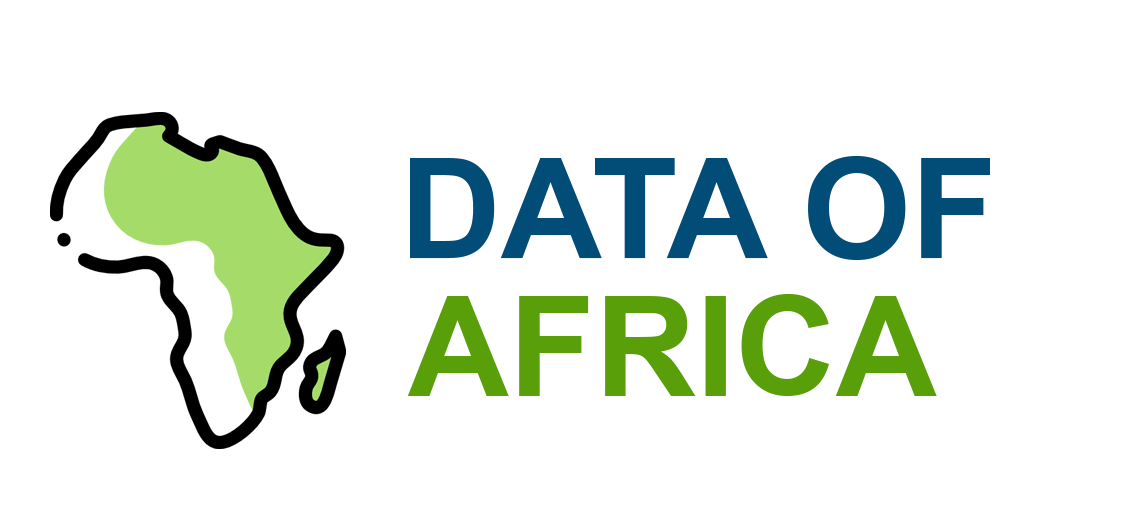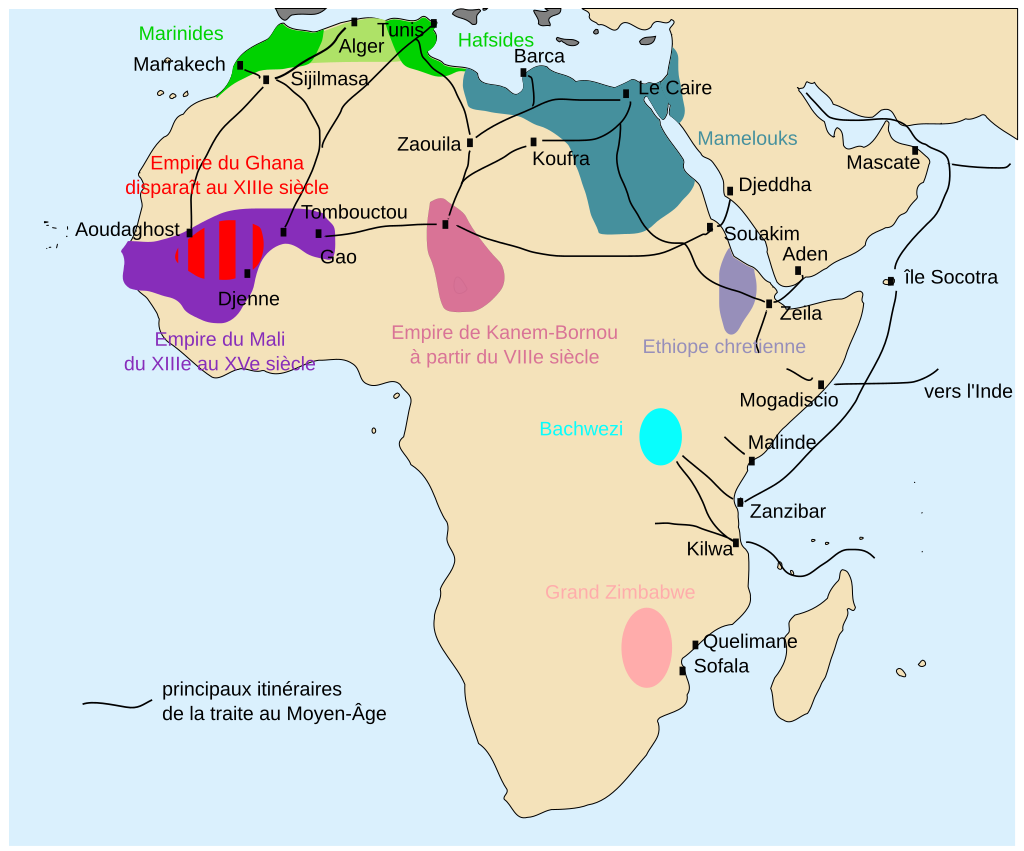Like other social organizations of the same period, African communities were unequal and based on slavery and, in some places, on a caste system linked to trades (castes of blacksmiths, weavers, griots, etc.). The slave trade had existed for a long time in Africa, connected to captives taken in warfare.
With the Islamic surge, trans-Saharan trade intensified, circulating gold, salt, and slaves between the North and South of the continent. The latter formed a significant part of the caravans. The Arab slave trade took on an additional dimension by accentuating, in addition to the intra-African trade, a sustained intercontinental traffic, long before the Europeans.
Thus, for example, the east coast of Africa had supplied India and China with black slaves since at least the 9th century. The Arab slave trade involved around seventeen million deported individuals.
Slave trade routes in Africa in the Middle Ages.
For more information :
- https://fr.wikipedia.org/wiki/Portail:Afrique
- https://en.wikipedia.org/wiki/Africa
- https://africacenter.org/
- https://journals.openedition.org/etudesafricaines/
- https://etudes-africaines.cnrs.fr/
- https://journals.openedition.org/etudesafricaines/
- https://www.afdb.org/fr/documents-publications/economic-perspectives-en-afrique-2024

